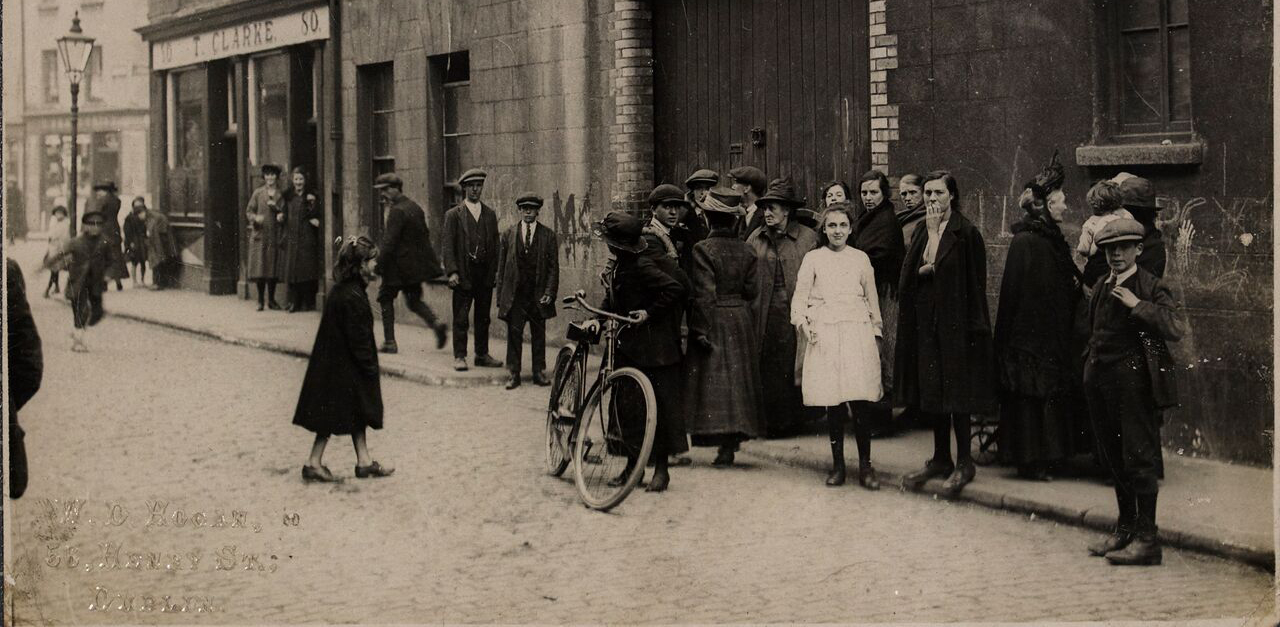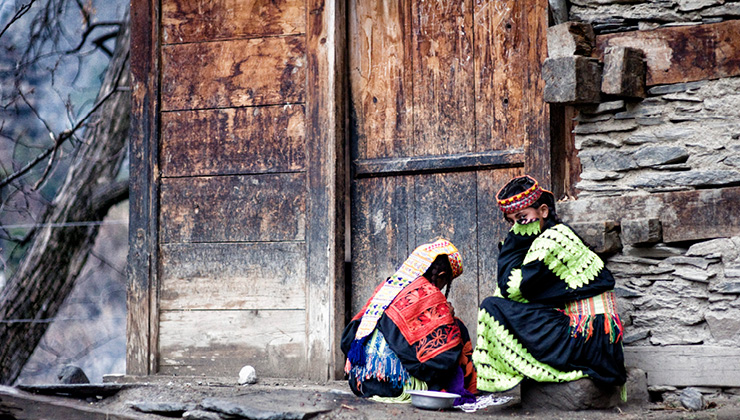Josephine Ahikire and Amon A. Mwiine at Makerere University tell us what a shocking video depicting gender-based violence which flooded social media in Uganda reveals about the social fabric of the post-conflict Acholi sub-region, and why the arrest and detention of the perpetrator only is not a sustainable solution to the rising conflicts over land in the region.
On Monday 13th April 2020, as the world remained entrapped in the deadly corona virus disease that has brought most global operations almost to a halt, a 3-minute video trended on social media in Uganda. This was neither about the impact of the virus nor on any new life-saving discovery against COVID-19, the most popular discourse in the world right now. Rather, the trending video featured a young man mercilessly flogging a half-dressed old woman that the public later came to know as his 82-year-old grandmother.
Uganda Police described the video clip as vicious, shocking, and disturbing, putting out a statement that the victim was rushed to a referral hospital for medical attention and examination and a case file opened on torture and attempted murder.
A Facebook user first raised the alarm in the evening of Easter Monday requesting the Gulu District Police Commander (DPC) to take action. Social media users who saw the video decried the inhuman character. It was not only unbearable for the viewers; it was also socially inconceivable for a young person to torture an old woman in full public view.
The video brings to the fore ethical discussions around the recording of such incidents by by-standers. However, as one Facebook post suggested, how else would such an incident have come to our knowledge without it being recorded? How many more go unnoticed? Indeed, it is the inscription of possibly common instances of this nature into the public discourse that enabled a social media video to spread quickly compelling police to act.
A question of land and social belonging
The social media reactions have been limited to the most immediate issues, calling for the arrest and detention of the abusive young man, medical attention to the grandma that was tortured physically and perhaps emotionally, and calls for the arrest of the person who recorded the incident for complicity in the abuse.
However, these social media outcries remain silent on the possible underlying concerns that animate such kinds of horrific manifestations in a post-conflict setting and the broader concerns within the Acholi sub-region on the issue of contested claims to land, the role of clan structures in (land) conflict resolution as well as issues of child belonging especially with regard to land, with an unofficial translation of the verbal exchange indicating a dispute over land ownership:
The young man is asking the old woman what she told other people in the village about him. Accordingly, the young man claims that the old woman told people that where they lived was not his home (ancestral home). He also says that the old woman mentioned that he does not have land there so he should leave that place. Meanwhile he’s telling his grandmother to show him where he belongs. There’s a name in there “Opio” being mention. The young man says that Opio is the only one considered to be a son of that home. The old woman is wailing helplessly while telling him she didn’t say anything to anyone regarding these claims. She says the boy should just kill her and take the land.
Reading this incident outside the post-war social context in the Acholi sub-region, is to strip the incident of the complex history that possibly informed this and many other social tensions that may not have received media coverage. For example, how do these grandmother/grandson conflicting claims over land resonate with the broader context of customary land tenure in Omoro district and traditional forms of accessing land through one’s parents (especially the father) in a given clan? The silences around the perpetrators parents, his clan identity and the possibility and capacity of the clan structures in resolving such conflicts only add to the complexity of the concerns raised by this incident.
Reading this incident outside the post-war social context in the Acholi sub-region, is to strip the incident of the complex history that possibly informed this and many other social tensions that may not have received media coverage
Drawing on an on-going study entitled “Beyond war compensation: Gender Justice, Livelihood and Land Rights in Northern Uganda”, we argue that while it is over a decade ago since the guns went silent in the northern Uganda, incidents of this nature point to a myriad of post-war conflicts which continue to emerge and occur frequently in the whole Acholi sub-region.
A number of studies have pointed out conflicts over land as one of the widespread post-war challenges and landed properties as the new terrain upon which fluid post-conflict social relations are being contested and renegotiated. In this context this incident can be understood as a manifestation of some of the deep-seated fractures of a conflict affected social fabric. By way of example, our ongoing research has captured some of the following contemporary concerns:
Tensions between the young and old generation: Most reminiscent stories about pre-war and post-war Acholi, point out the frustrations with the current youth in terms of their attitude towards traditions and general ways of living. Often, these youth are labelled, in denigrating ways, as ‘lutino camp’ – those children born in the camp. Evaluative descriptions of the youth included, children with no values, humans who are empty shells, lazy and not interested in work at all, alcoholics, they disrespect elders, and they do not want to return in the villages. The feeling of “US” (old generation) against “THEM” is deeply entrenched in communities’ everyday conversation. The construction of the children/youth born in the camp has a potential to denigrate them and project them as a symbol of social disruption, loss of social values and a generation out of touch with the Acholi traditions of integrity, trust, hard work, among other virtues.
A number of studies have pointed out conflicts over land as one of the widespread post-war challenges and landed properties as the new terrain upon which fluid post-conflict social relations are being contested and renegotiated
Conflicting claims to land: Conflicts on land were noted as the most biting and widespread in the Acholi sub-region. Conflicts over land – competing land claims are the most prevalent form of conflict affecting almost all the spheres of community. Notably, communities speak about the end of war but also the emerging new forms of conflicts now “lara ngom” (land disputes) and secondly “kukukuku” or Gender Based Violence (GBV). These conflicts manifest in form of contests over land boundaries, shifts in customary land tenure system, increasing numbers of children with multiple identities – Okeyo (nephews) and Lakeyo (Nieces) – rich individuals grabbing land, discontent over the certificate of customary ownership, among others.
Okeyo, Lakeyo and their claims to land: There was a notable trend in which children born out of wedlock and the nephews (Okeyo) and nieces (lakeyo) increasingly being chased out of homes in fear that they will claim land from their mothers’ natal clans. The Okeyo and Lakeyo are intensely chased when they return in their mothers’ natal homes (at the grandparents), for fear of claiming land, signalling failure in social systems that promoted harmonious co-existence (ber bedo) before war.
These are some of the contemporary issues within the social fabric that possibly point to new forms of conflicts within a post conflict setting. As we celebrate the short-term reactionary gains in the arrest and detention of the perpetrator for physical assault on his grandmother, this is neither the only case nor a sustainable solution to conflict ridden communities. The solution might lie in the understanding of these as mere manifestations of broader intractable development concerns and the need for long-term investment in these to realise sustainable peace in the region.
The UKRI GCRF Gender, Justice and Security Hub is working to advance sustainable peace by developing an evidence-base around gender justice and inclusive security in conflict-affected societies.
The views, thoughts and opinions expressed in this blog post are those of the author(s) only, and do not necessarily reflect LSE’s or those of the LSE Centre for Women, Peace and Security.
Image credit: Photo by Random Institute






So informative!! 👌